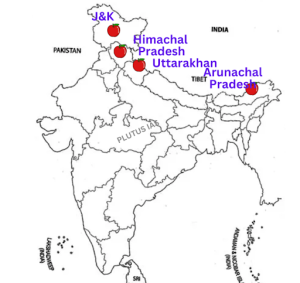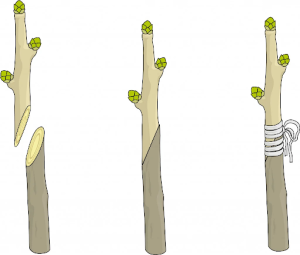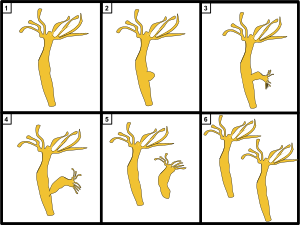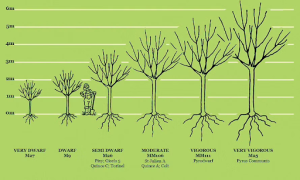03 Oct The backbone of Kashmir’s economy, Kashmiri apple is facing a crisis
The backbone of Kashmir’s economy, Kashmiri apple is facing a crisis
The topic is based on How the Kashmiri apple crisis impacts Kashmir’s economy. The article talks about the Indian Economic and Social development significance of Kashmir’s economy.
Prelim: Economy of India, Social and Sustainable Development, Poverty, Inclusion, Social Sector initiatives demographics,
Mains: GS III India’s scope in food processing Its significance
Why in headlines:
The apple industry of Kashmir, the backbone of Kashmir’s economy, is going through a crisis in a year of a bumper crop.
The Major apple-producing states and UTs of India:

Pic: Kashmir’s Economy-Kashmiri apple’s crisis
Conditions required for Apple production:
- Apple or Malus pumila is a prime temperate fruit.
- Apples are commonly consumed fresh however a small part of the production is processed into juices, jellies, canned slices and other items.
- In India, Apple is commonly cultivated in Jammu & Kashmir; Himachal Pradesh;
- Some hilly areas of Uttarakhand and Uttar Pradesh.
- Also, it is cultivated to a small extent in Nagaland, Arunachal Pradesh, and Sikkim
Climate required:
- Despite the fact that the apple is a temperate fruit crop, apple-growing areas of India do not fall in the temperate zone. The areas of apple growing prevail temperate climate of the regions because of the Himalayan ranges and high Altitudes.
- During the active growth time of the crop, it requires a climate of average summer temperature of around 21-24oC
- Apple works outs best in areas where the trees get a steady rest in winter and abundant sunlight for better color development.
- It commonly grows at the height of 1500 to 2700 m above sea level.
- For optimum growth and fruitfulness of the apple trees, it requires a well-distributed rainfall of 1000-1250 mm throughout the growing seasons
Soil requirement:
- It requires well-drained loam soils.
- Having a depth of 45 CM.
- The required pH range of pH 5.5-6.5
- The soil must be free from hard substrata and also any kind of water-logged condition
- The soil consists of heavy clay or compact subsoil that is not suitable for it
Propagation:
- Grafting: Apples are cultivated in many ways like whip, tongue, cleft, and root grafting.
- Tongue and cleft grafting at 10-15 cm above the collar throughout February-March gives the best results. Grafting is done at the end of winter.

Pic: Propagation Process
Budding :
- Apples are usually cultivated by shield budding, which gives a high chance of success.
- A single bud, as well as a shield piece of stem, is cut along with the scion and inserted beneath the rind of the rootstock through a ‘T’ shaped incision during the active growth period in Sheild budding process.
- When the buds are fully grown during summer, Budding is done at that time.
- The perfect time for budding in Kashmir Valley is September, Kumaon hills of Uttaranchal, high hills of Himachal Pradesh, and June in mid hills of Himachal Pradesh

Pic: Budding Process
Rootstocks :
- A huge amount of apples is grafted or budded on the seeding of wild crab apples.
- The seedling rootstocks obtained acquired from the seeds of diploid cultivars like Golden Delicious, Yellow Newton, Wealthy, Macintosh and Granny Smith also can be used
- High-density planting uses dwarfing rootstocks (M9, M4, M7 and M106).

Pic: Rootstocks Process
Varieties :
- Jammu and Kashmir: Golden Delicious (Late Season), Lal Ambri, Mollies Delicious, Starkrimson, Red June, Irish Peach, Benoni and Tydeman’s Early.
- Himachal Pradesh: Golden Delicious (Late Season), Red Delicious (Midseason), McIntosh
- Uttarakhand, Uttar Pradesh: McIntosh, Chaubattia Anupam
- Arunachal Pradesh: 24 varieties of apples are grown
Post harvesting management
Pre-cooling:
- The surface of the fruit must be free from any kind of moisture before grading, wrapping or packing for transportation in cartons
Grading:
- On the basis of the size and appearance of the fruit or the quality of the fruit, the grading of apples is done manually in 6 grades.
- Apple can be graded in 3 or more quality grades, on the basis of color, shape and quality.
- These grades are named AAA, AA and A, or A, B, C or extra fancy, fancy class I nad fancy Class II.
Storage:
- Apples have a long storage life as compared to other fruits i.e up to 4 to 8 months after harvesting.
- This fruit can be kept in cold storage at 1.10 to 00 C temperature and 85-90% relative humidity.
Packing:
- Usually, wooden books or corrugated fiberboard cartons having of capacity 10 to 20 kg are used in the packaging of Apple for transportation
Transportation:
- Roadways are the most preferred way of transportation for this fruit as it is convenient to reach from the orchards to the market
Marketing:
- The marketing of this fruit is primarily done by the intermediaries such as wholesalers and commission agents.
- During years of good production, the wholesale prices in producing areas slip down to un-remunerative levels.
Reason for the crisis in apple farming:
- The reasons for the crisis in apple farming in India
- Increasing cost production.
- The rising input cost of fertilizers, insecticides, and fungicides in the last 10 years by 300%
- As well as the cost of packaging cartons, and trays have also risen in that few years.
High taxation:
- To ensure that the farmers sell their stocks to the big buyers rather than selling the open markets, the GST on cartons has been raised from 12% to 18 %,
No MSP in Himachal:
- Like J and K , there is a minimum rate for procurement, there is no such kind of law in Himachal Pradesh, as well the government is not ready to introduce such kind of law.
- Even the farmers are asking for the MSP(C2+50) should be ensured to upgrade the apple farmers’ condition.
How to resolve this problem:
- Need for a regulating body
- An independent body must be required which can duly support the farmers and can be trusted by them
- The body must be a statutory body having the authority to conduct research on the apple ceremony.
- These bodies must have their representative apple cultivators, market players, commission agent, and the government.
The Directorial efforts ;
Issues like lack of fair price, high input cost, and unavailability of infrastructure like cold storage must be addressed
Research works to improve Apple farming research.
- This is very important to enhance the net incomes and livelihood of the apple cultivator in India by introducing the European varieties in India. The research work that is done in the past few decades and government policies, basically, focus on apple production to improve the tree productivity and quality of the product. Government must focus to upgrade the living condition of the cultivators
Sources:
Current Affairs for UPSC
Nowadays reading current affairs is very crucial for any competitive examination. Without reading daily current affairs, You can’t acquire general knowledge. If you are preparing for the IAS examination, you should read IAS current affairs regularly. To pass the Prelims, Mains, and interview exam, every UPSC aspirant has to read and memorize important current affairs.
Plutus IAS servers top 10 current affairs every day. You get all new current affairs from our site free of cost. There are many websites those who are providing daily current affairs for UPSC examination. But we provide the precise and the best current affairs for UPSC, IAS, and SSC examinations free of cost. So get the best daily current affairs for UPSC from us.
Download PDF:



No Comments